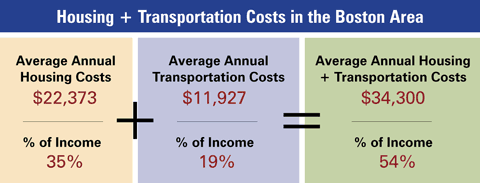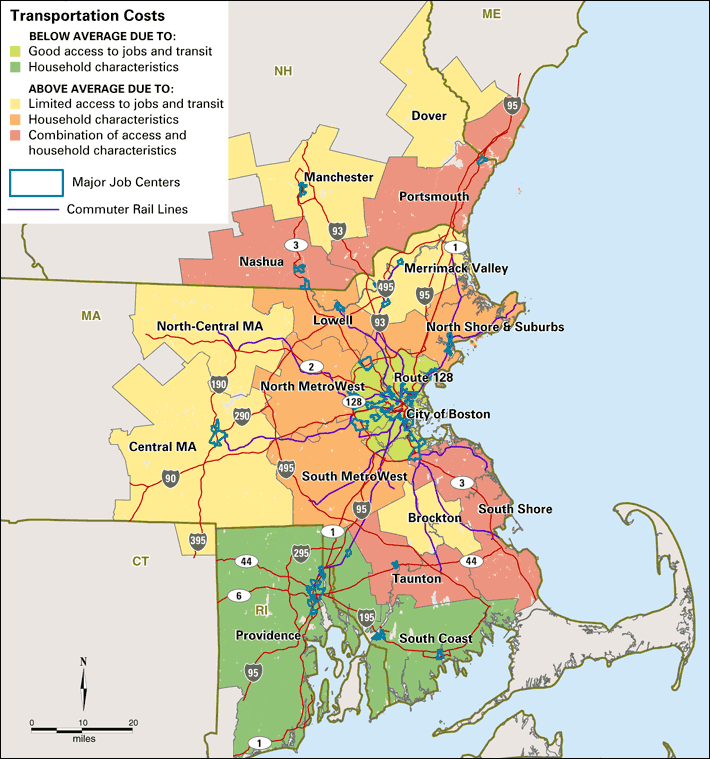
The Urban Land Institute (ULI) Terwilliger Center for Workforce Housing released the findings of an important real estate report which, for the first time, calculates the combined costs of housing and transportation for families living in the Boston region. According to the report’s findings, the average working household in the Boston region spends over $34,000 a year – or 54 percent of their income – on the combined costs of housing and transportation.
“Within the Boston region, there are pockets where housing is affordable but transportation offsets those lower costs. Many people in the workforce – teachers, nurses, office workers – are forced to spend precious time and money commuting from the homes they can afford to the places where they work,” said J. Ronald Terwilliger, Chairman of the ULI Terwilliger Center. “These findings illustrate that years of ever-sprawling development have resulted in a growing gap between where people live and where they work.”
Housing and transportation costs vary among the 18 regions examined, ranging from 48 percent of household income in MetroWest to 62 percent in the South Coast. The study finds that one in four households are in neighborhoods where housing and transportation costs account for 58 percent or more of income – a level defined as an extreme burden.
In the City of Boston, the cost is 56 percent, due in part to the City’s extensive public transportation system. In fact, Boston proper had the lowest transportation cost of all the regions studied in the report.

Boston Regional Challenge was produced in partnership with the Center for Housing Policy (CHP) and the Center for Neighborhood Technology (CNT). The report provides a comprehensive analysis of the “cost of place” for 18 regions stretching from southern New Hampshire to Worcester to Rhode Island.
The press conference will feature comments from Ron Terwilliger, Boston Mayor Thomas M. Menino, U.S. Representative Stephen Lynch and New England Regional HUD Director Richard Walega.
“This report underscores the importance of broadening the understanding surrounding some of the challenges associated with housing affordability to also include transportation costs, travel time and the negative environmental impacts of commuting,” said Terwilliger. “We hope local, state and federal leaders will use this report to help guide future development, zoning and transportation decisions for this vital region.”
A new Web site, www.BostonRegionalChallenge.org, has been created to serve as an information source for families and policy makers to better understand the issues and true cost of both housing and transportation in the Boston region. The site contains an easy-to-use online Cost Calculator, which helps people determine their combined housing and transportation costs based on where they live, where they work and how they commute. Copies of the report can be downloaded from this site.
The release of the report is in conjunction with the ULI Real Estate Summit at the Spring Council Forum, being held this week in Boston. The need to build workforce housing closer to employment centers is among many issues being discussed as part of ULI’s overall efforts to promote sustainable communities.
